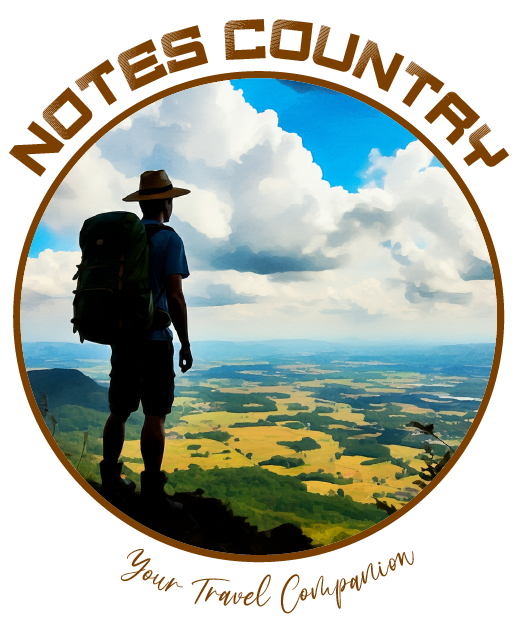Japan, a country rich in history, culture, and natural beauty, offers a diverse range of tourist attractions. Here are some of the most popular cities and regions:
Tokyo
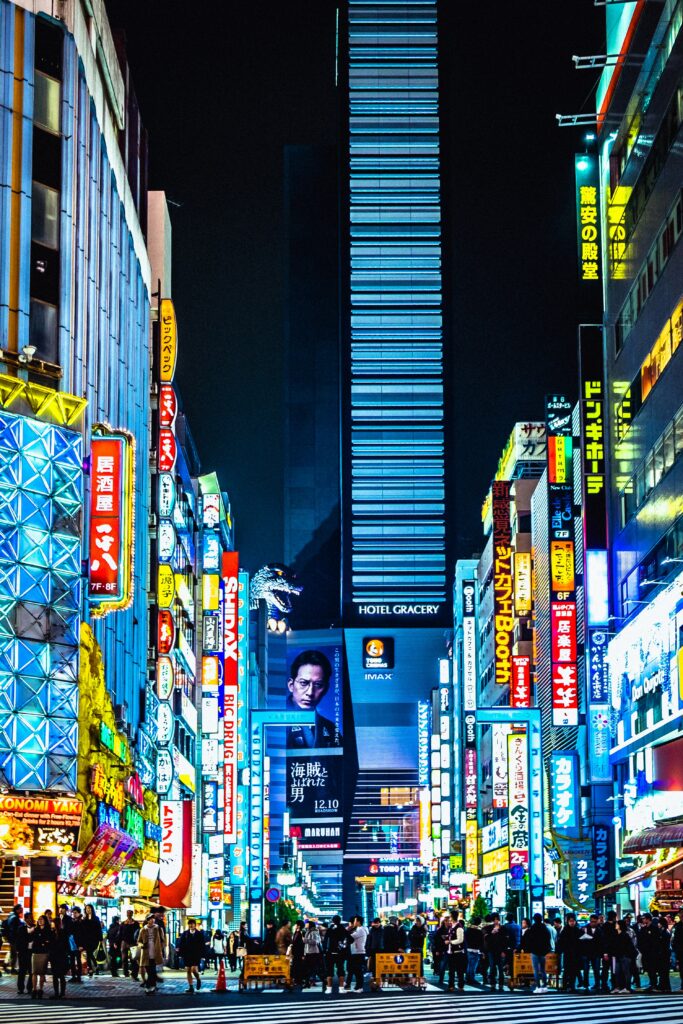
- Tokyo Tower: An iconic landmark offering panoramic views of the city.
- Shibuya Crossing: One of the busiest pedestrian crossings in the world.
- Senso-ji Temple: The oldest and most famous temple in Tokyo.
- Tsukiji Fish Market: A bustling market known for its fresh seafood and tuna auctions.
- Imperial Palace: The official residence of the Emperor of Japan.
Kyoto
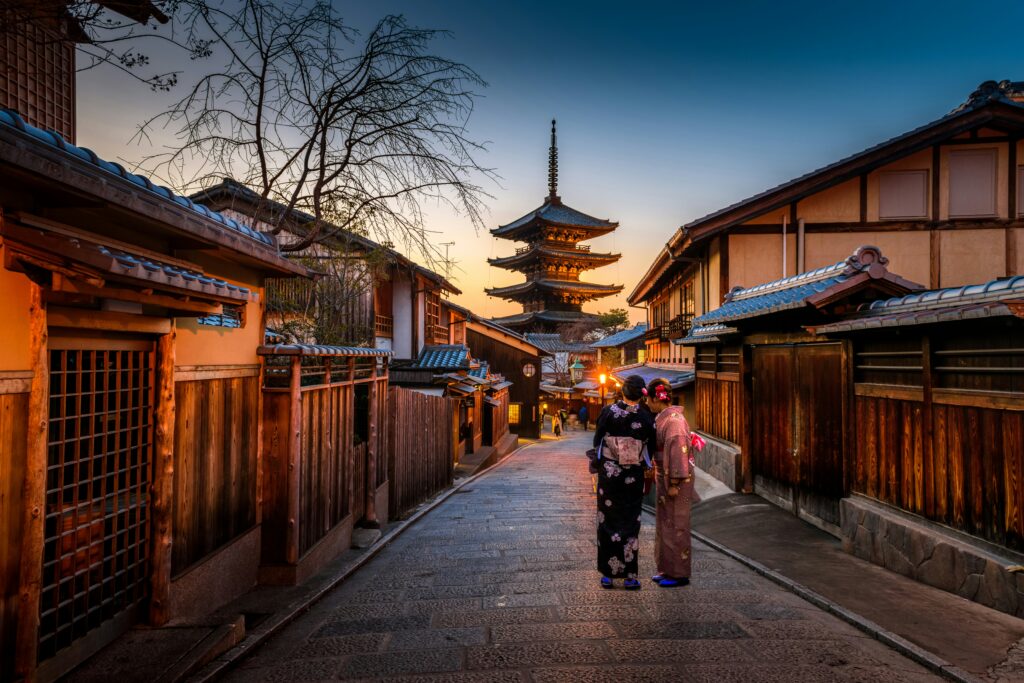
- Kinkaku-ji Temple (Golden Pavilion): A Zen temple covered in gold leaf.
- Ginkaku-ji Temple (Silver Pavilion): Another famous Zen temple, known for its serene gardens.
- Arashiyama Bamboo Forest: A picturesque forest with towering bamboo stalks.
- Fushimi Inari Shrine: A shrine with thousands of torii gates leading up a mountain.
- Gion District: A traditional geisha district with wooden machiya houses and teahouses.
Osaka
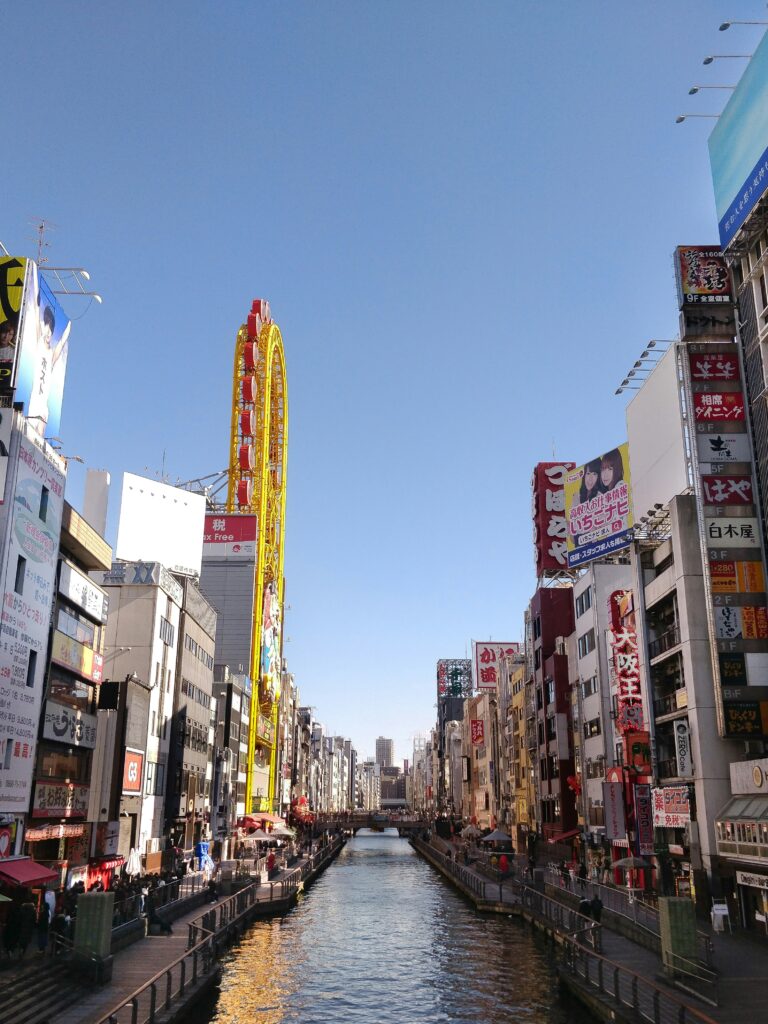
- Osaka Castle: A historic castle with beautiful gardens and a museum.
- Dotonbori: A vibrant shopping and entertainment district with neon lights and street food stalls.
- Universal Studios Japan: A theme park with attractions based on popular movies and TV shows.
- Tennoji Zoo: One of the largest zoos in Japan, with a variety of animals and exhibits.
Hiroshima
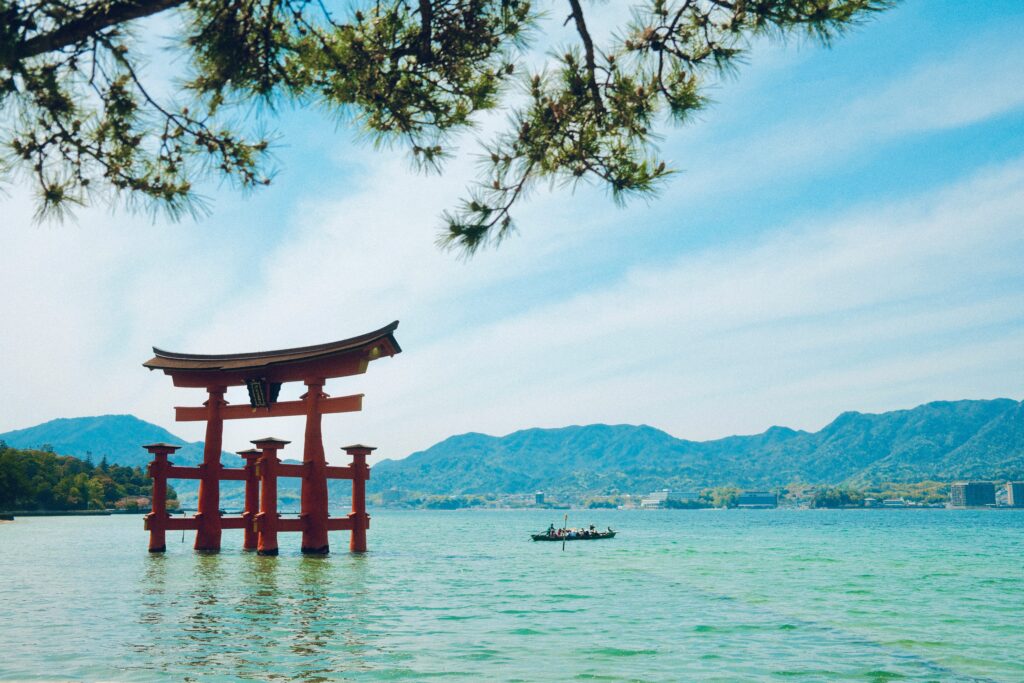
- Peace Memorial Park: A park commemorating the atomic bombing of Hiroshima.
- Peace Memorial Museum: A museum dedicated to the history of the atomic bombing.
- Itsukushima Shrine: A UNESCO World Heritage Site located on Miyajima Island.
- Hiroshima Castle: A historic castle rebuilt after the atomic bombing.
Hokkaido
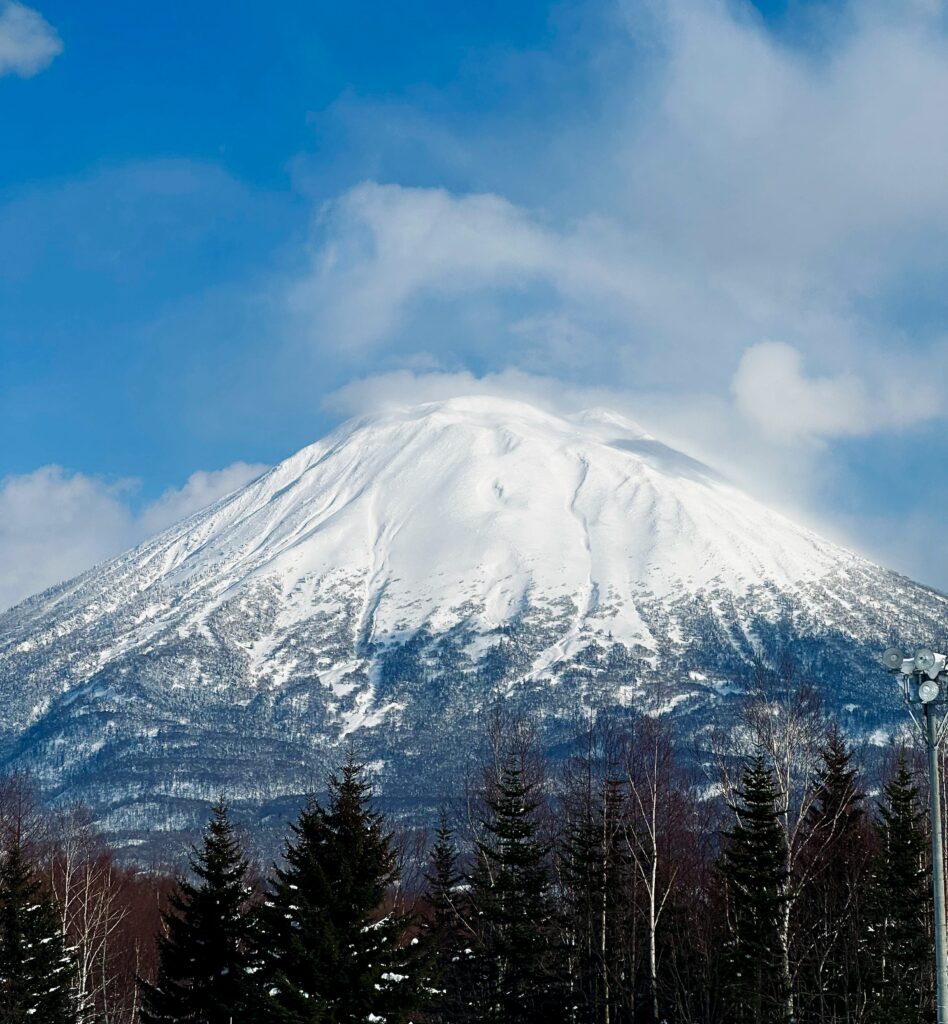
- Sapporo: The capital of Hokkaido, known for its winter festivals and beer gardens.
- Otaru: A charming coastal town with canals and glassworks.
- Lake Toya: A volcanic lake with hot springs and scenic views.
- Shiretoko National Park: A UNESCO World Heritage Site with stunning natural landscapes and wildlife.
Okinawa
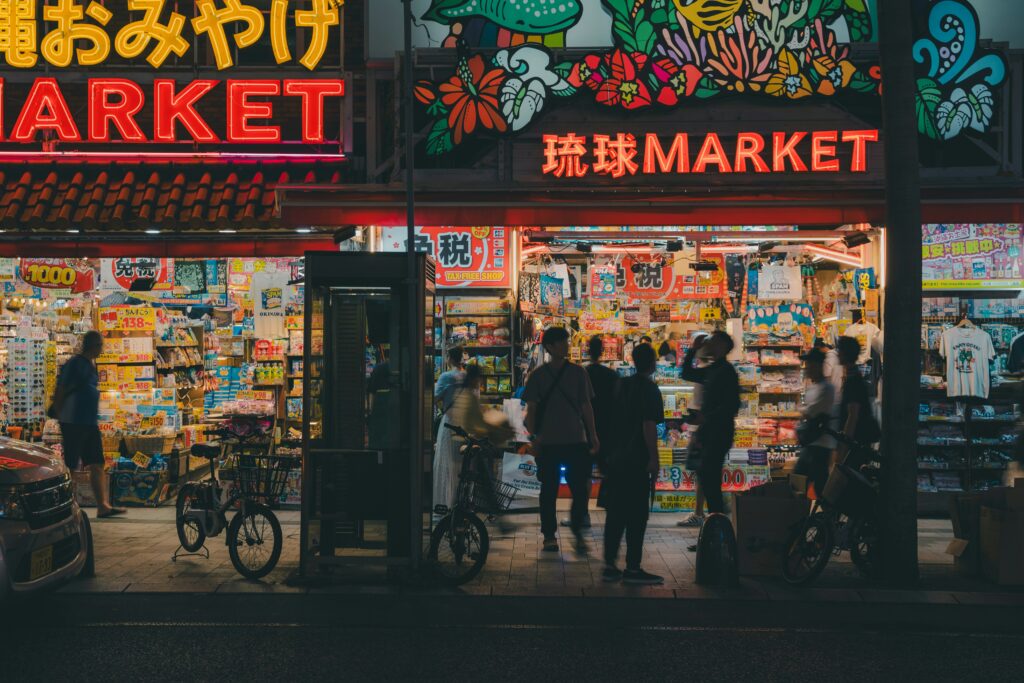
- Naha: The capital of Okinawa, with a mix of Japanese and Okinawan culture.
- Shuri Castle: A historic castle that was destroyed in World War II but has been rebuilt.
- Churaumi Aquarium: One of the largest aquariums in the world, featuring a giant whale shark tank.
- Kerama Islands: A group of islands with beautiful beaches and coral reefs.
This is just a small sample of the many tourist attractions that Japan has to offer. With its rich history, culture, and natural beauty, Japan is a fascinating country to explore.
Planning a trip to Japan requires careful preparation to ensure you have a smooth, enjoyable, and culturally respectful experience. Here’s an expanded guide to help you with your trip to Japan:
1. Travel Documents
- Visa: Many nationalities, including those from the US, EU, UK, Australia, and Canada, can enter Japan for tourism without a visa for stays up to 90 days. However, always check specific visa requirements for your nationality before traveling. If a visa is required, the process is generally straightforward.
- Passport: Ensure your passport is valid for the entire duration of your stay in Japan.
- Travel Insurance: It’s advisable to have travel insurance that covers medical expenses, trip cancellations, accidents, and loss of belongings. Medical care in Japan is excellent but can be expensive if you’re uninsured.
2. Entry Requirements
- COVID-19: Japan has relaxed most COVID-19 entry restrictions, but be sure to check for updates on vaccination or testing requirements, which may change. Proof of vaccination or a negative PCR test might be required based on your country of origin.
- Customs Regulations: Japan has strict regulations on what you can bring into the country. Certain drugs (including some over-the-counter medications in other countries) are prohibited. It’s best to declare all medications, and if in doubt, consult the Japanese embassy for advice.
3. Health Conditions
- Vaccinations: No mandatory vaccinations are required for travel to Japan, but it’s recommended to be up-to-date on routine vaccines such as hepatitis A, B, and typhoid. Influenza vaccinations can be helpful if traveling during flu season (November to March).
- Medical Assistance: Japan has world-class healthcare facilities, especially in larger cities. Most hospitals will have English-speaking staff in major urban areas, but in smaller towns, communication can be challenging. Having travel insurance is highly recommended.
- Water Safety: Tap water in Japan is safe to drink and of excellent quality. There’s no need to buy bottled water unless you prefer it.
4. Currency and Payment Methods
- Local Currency: The currency in Japan is the Japanese Yen (JPY). ATMs are widely available, but not all international cards are accepted everywhere. ATMs in post offices, 7-Eleven stores, and other convenience stores are most likely to accept international cards. It’s wise to carry some cash, as many smaller businesses, especially in rural areas, may not accept credit cards.
- Credit Cards: While major credit cards (Visa, Mastercard, and American Express) are accepted in most hotels, department stores, and larger restaurants, cash is still the preferred method of payment, especially in smaller establishments.
- Suica and Pasmo Cards: These are rechargeable smart cards used for public transport but can also be used at some stores and vending machines. They are convenient to use and save time when navigating the train systems.
5. Language and Culture
- Local Language: Japanese is the official language, and while many people in urban areas speak some English, especially in hotels, restaurants, and tourist spots, English proficiency may be limited in rural areas. Learning a few basic Japanese phrases (like greetings and thank you) is not only polite but can also enhance your travel experience.
- Culture and Customs: Japan is deeply rooted in respect, order, and politeness. Bowing is a common greeting, and it’s important to follow social etiquette, such as not talking loudly in public places and adhering to rules in public transport (e.g., no eating or talking on mobile phones on trains). Always remove your shoes when entering someone’s home or certain traditional inns (ryokan), temples, or shrines.
6. Safety
- Crime: Japan is one of the safest countries in the world, with very low crime rates. Violent crime is rare, and pickpocketing is not common. However, it’s always wise to exercise normal precautions, such as keeping an eye on your belongings and avoiding poorly lit areas at night.
- Natural Disasters: Japan is prone to natural events such as earthquakes and typhoons. Earthquake preparedness is a common part of life, with regular safety drills in schools and workplaces. Familiarize yourself with safety procedures in case of an emergency, and keep an eye on weather forecasts, particularly during typhoon season (June to October).
- Scams and Fraud: Scams are relatively uncommon in Japan, but be wary of tourist traps, especially in major cities like Tokyo and Osaka. Always use official taxi services or apps like Uber.
7. Weather and Clothing
- Seasons: Japan experiences all four seasons:
- Spring (March to May): Famous for cherry blossoms (sakura). Temperatures are mild, but nights can be chilly. Light layers and a jacket are recommended.
- Summer (June to August): Hot and humid, especially in cities like Tokyo and Osaka. Light, breathable clothing is essential, but carry an umbrella as summer is also the rainy season. August is also the season for fireworks festivals and the Obon holiday.
- Autumn (September to November): Beautiful with vibrant autumn leaves (koyo). Temperatures are cooler, and layers are recommended.
- Winter (December to February): Cold, especially in northern Japan. Snow is common in regions like Hokkaido and the Japanese Alps, making it a great season for skiing. Bring warm clothes, including gloves and a hat.
- Clothing: Pack according to the season and activities you plan to do. Comfortable shoes are essential for walking, especially if you plan to visit many temples, shrines, or parks. Japan is a relatively conservative country, so dressing modestly, especially in religious or traditional areas, is appreciated.
8. Transportation
- Public Transport: Japan has one of the most efficient public transportation systems in the world. The train network, especially the Shinkansen (bullet trains), is fast and reliable. Metro systems in cities like Tokyo, Osaka, and Kyoto are excellent. Consider getting a Japan Rail Pass (JR Pass), which offers unlimited travel on JR trains for a set number of days and is highly cost-effective for tourists.
- Taxis: Taxis are readily available in cities, but they can be expensive. Most taxi drivers do not speak English, but there are apps like JapanTaxi that allow you to book taxis and communicate destinations.
- Cycling: Many cities, such as Kyoto, are very bike-friendly. Renting a bicycle is a great way to explore, especially in smaller cities or rural areas.
- Driving: Renting a car is only necessary if you plan to explore rural areas where public transport is less frequent. Japan drives on the left side of the road, and an International Driving Permit (IDP) is required to rent a car. Parking in cities can be expensive and limited.
9. Accommodation
- Hotels: Japan has a wide range of accommodation options, from international hotel chains to traditional ryokan inns. In cities like Tokyo and Osaka, you’ll find luxury hotels, mid-range options, and budget hostels. Ryokan offer a unique cultural experience, often including traditional tatami mat rooms, futon bedding, and communal baths.
- Capsule Hotels: For a unique and budget-friendly experience, capsule hotels offer compact sleeping pods and are a good option for solo travelers or short stays.
- Airbnb and Guesthouses: Airbnb is widely available, though you should ensure that the host is registered with the Japanese government. Guesthouses offer a cozy, often family-run option for accommodation, particularly in smaller towns.
10. Emergency Numbers
- Embassies: Ensure you have the contact details for your country’s embassy or consulate in Japan. Most embassies are located in Tokyo.
- Emergency Numbers:
- Police: 110
- Ambulance and Fire Services: 119
- In case of a major earthquake, tune into NHK (Japan’s public broadcaster) for English-language emergency information.
11. Internet and Telephony
- Pocket Wi-Fi: Renting a portable Wi-Fi device is highly recommended for staying connected while traveling around Japan. These can be rented at the airport or ordered online for delivery to your hotel.
- SIM Cards: Prepaid SIM cards are available for tourists, providing affordable data plans. These can be purchased at airports or in major electronics stores.
- Wi-Fi: Free Wi-Fi is becoming more available in Japan, especially in major cities, but it’s still not as widespread as in other countries. Hotels, cafes, and some public areas offer Wi-Fi, but having a pocket Wi-Fi or SIM card is advisable.
- Electrical Adapters: Japan uses a 100V, Type A/B plug system, similar to the US. If you are coming from Europe or other regions, bring an adapter.
12. Working Hours and Public Holidays
- Business Hours: Most businesses are open from 9 a.m. to 5 p.m., though restaurants and convenience stores often stay open late. Many restaurants and stores in busy cities like Tokyo are open 24 hours.
- Public Holidays: Japan observes several public holidays, such as New Year’s Day (January 1), Golden Week (late April to early May), and Obon (mid-August). During these periods, many businesses may close, and popular tourist spots can be crowded. Make reservations in advance if traveling during these times.
13. Tipping
- Tipping is not customary in Japan and is generally frowned upon. Good service is expected without the need for extra payment. If you leave money as a tip, it may be returned to you. However, high-end restaurants or ryokan may include a service charge in the bill.
14. Cultural and Social Connections
- Japan has a rich cultural heritage, and there are plenty of opportunities to connect with traditional arts such as tea ceremonies, calligraphy, flower arranging (ikebana), and sumo wrestling. Exploring ancient temples, shrines, and castles is a must. You can also engage with modern aspects of Japanese culture, such as anime, manga, and J-pop.
15. Healthcare and Emergencies
- Pharmacies: Pharmacies (薬局, yakkyoku) are common and carry a range of over-the-counter medications. Staff may not speak much English, so bringing a translation app or a note of what you need can be helpful.
- Private Healthcare: Japan has excellent healthcare, but it is mostly private and can be expensive if you do not have insurance. Always carry your travel insurance details with you in case of medical emergencies.
Final Tip:
Be ready to experience a blend of ancient traditions and modern technology in Japan. From serene temples and beautiful natural landscapes to bustling cities and cutting-edge technology, Japan offers a unique travel experience with deep cultural immersion. By considering these key points, you will be well-prepared for an unforgettable journey in Japan!
